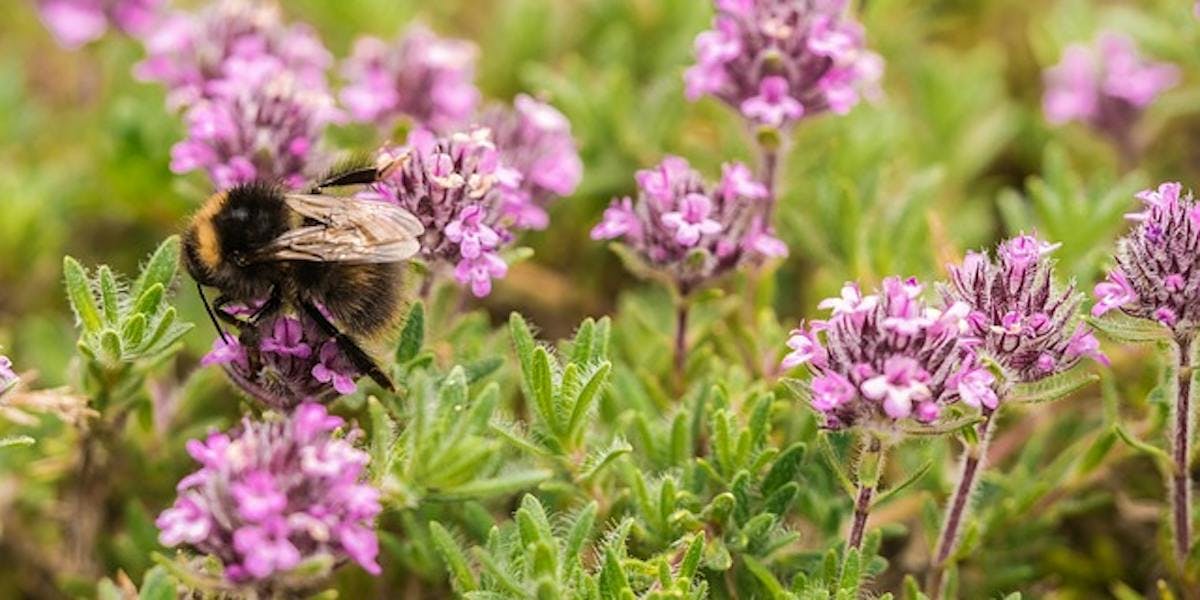Lifestyle
7 Ways To Make Your Garden More Bee-Friendly
8min read
How to save the bees and be a buzzin’ garden hero. Tips on how to plant smart, and keep bees buzzing all year round, and tips on how to make a bee hotel, nest and watering station.
There are over 250 species of bees in the UK, and we’re likely to see up to 20 of these in our gardens at home. Some of the most common to spot are the red-tailed bumblebee, the garden bumblebee (with an incredibly long tongue to get hard-to-reach nectar) and the slim, relatively hairless honeybee.
Why should we make our gardens more bee-friendly?
You might already be in the loop as to why bees have such environmental significance. For anyone who hasn’t seen Spring Watch recently, bees collect nectar from flowers and take it back to their hives. This is where, for some bees, the honey process continues.
Been wondering if honey’s vegan? Get the lowdown here (spoiler: it isn’t, but there are plenty of plant-based alternatives).
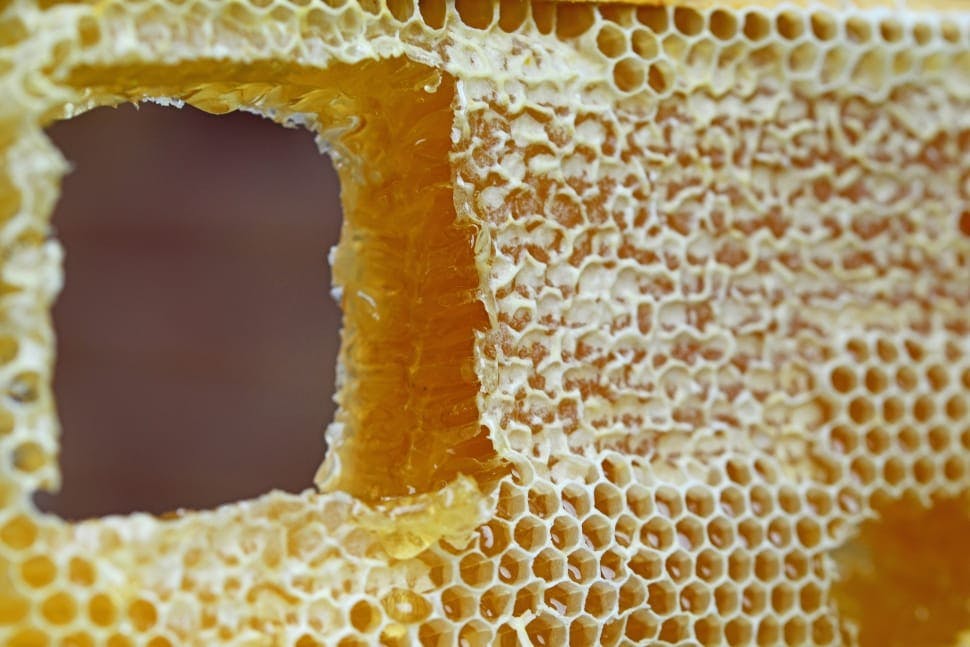
During their time collecting nectar, the bees complete another important job by helping with pollination. They spread excess pollen between flowers and plants, generally helping the life-cycle of all our interlinked ecosystems.
By making our gardens a little more bee- welcoming, we are ensuring the continuation of the little insects' great work, and making our own green spaces more biodiverse at the same time.
What we can build:
How to make a bee hotel
Most of the species of bees in the UK have a solitary existence and don’t live in colonies. By creating a bee hotel, we can attract many varied types of bees to lay their eggs, making our gardens richer in the process.
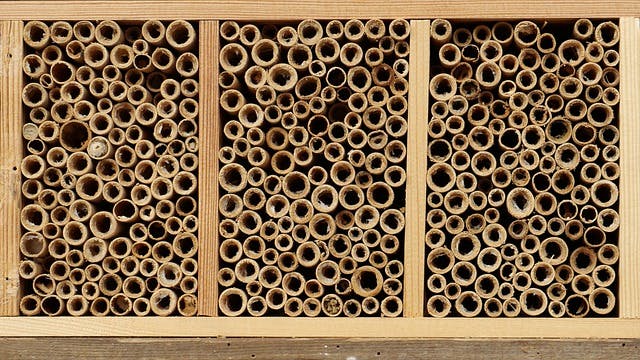
Here’s the Wildlife Trust’s guide on how to make a simple bee hotel from bamboo, reed and bramble hollow stems. It’s a great craft to get little ones involved with, too!
Bee nests
Whereas hotels are for bees to lay their eggs, these nests are for queen bumblebees to move into in late winter or early spring, after hibernating in forgotten vole and shrew holes.
For simple tips on how to make a bee nest, here is Gardener’s World’s instructions.
What we can plant:
The best flowers for bees
When you picture an English country cottage happily abuzz with bees, it will be because there is a huge variety of nectar-rich flowers for your bees to get excited by. Some of the best for them, and prettiest for us, are:

- Snowdrops
- Crocuses
- Lavender
- Foxgloves (for bees with long tongues)
- Honeysuckle
- Ivy
By choosing a selection of flowers like the ones listed above, we can have as long a flowering period as possible. By planting smartly, we can feed our bees all year round (at least, whilst they’re awake – Generally between March and October).
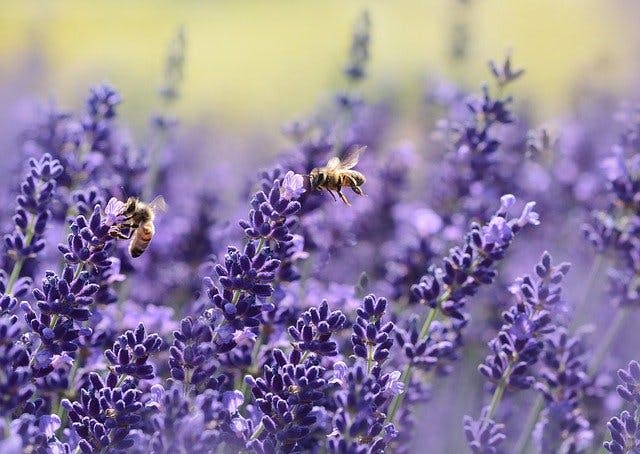
Try clumping flowers together, so your bees can get their fill on the same type of nectar without having to fly too far.
Planting a wildflower meadow
This doesn’t have to be as decadent as it sounds and requires very little attention from us. If you’re able to dedicate anything from a large window box, to a whole patch of your garden into becoming a wildflower meadow, then you’ll have some very happy bee neighbours.
Herbs
Add fresh flavours to your dinner and feed your bees at the same time with:
- Mint
- Thyme
- Marjoram
- Chives
- Rosemary
Avoid using pesticides
Using pesticides and weed killers in our gardens can be harmful to the wildlife that lives there. Here’s a list of 8 natural and homemade insecticides from Tree Hugger to use instead.
Somewhere to drink
Lastly, somewhere for our buzzing friends to drink is also important. Something shallow and flat like a plate with small stones in the bottom, would offer a great spot for bees to stop and quench their thirst. (Bird baths are too deep and risk drowning).
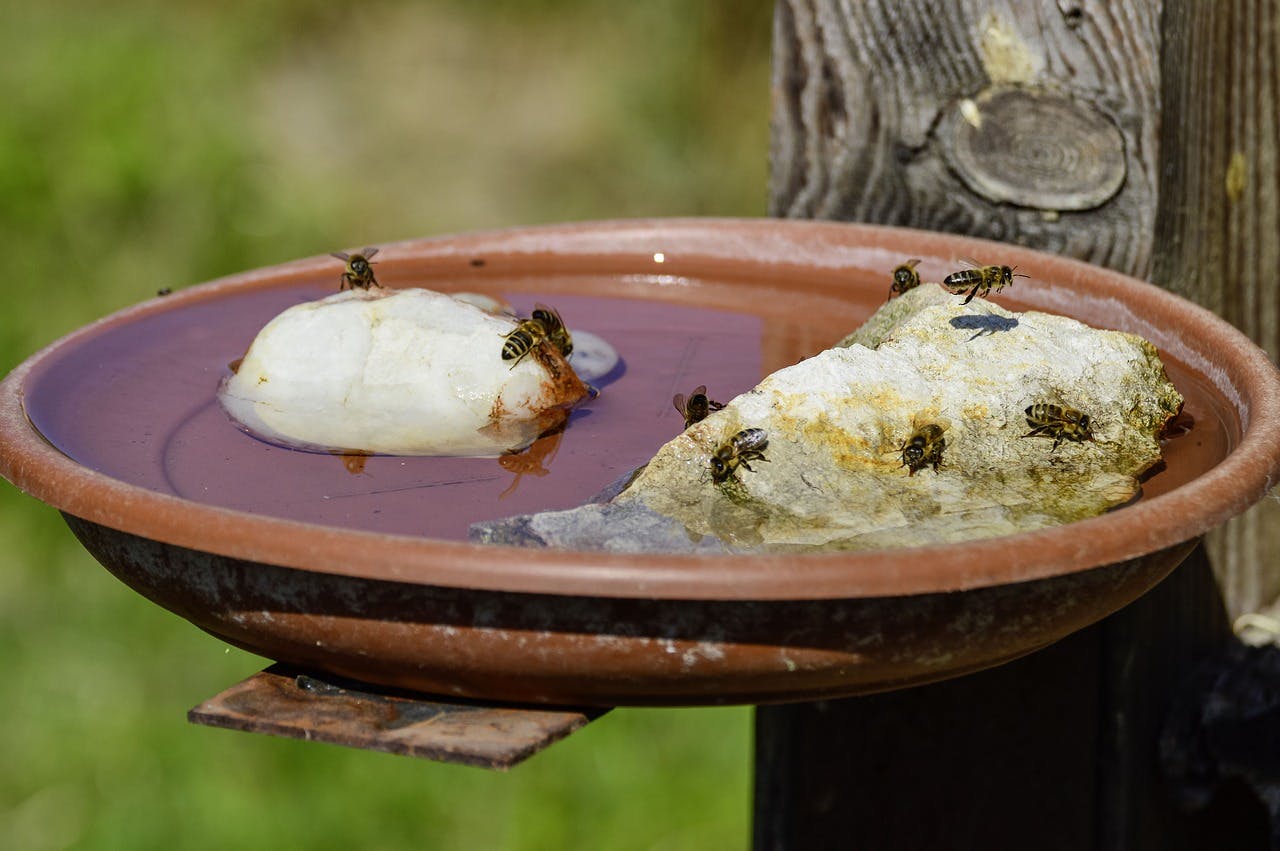
If you have more space, a pond will do the trick (so long as there are shallow and accessible parts for the bees to get in and out) and will make your garden even more biodiverse.
Let us know which of these you’ve tried in the comments below.
By Fabian Jackson
Fabian is one of our lovely Content Marketing Assistants who loves writing almost as much as he loves coffee, old episodes of Escape to the Country (no judgement here), and cooking up a storm in his kitchen.
Let us take care of dinner
We help to make eating more plants easy and delicious. Fancy letting us take care of dinner? Check out our delicious meals here.
Shop now
